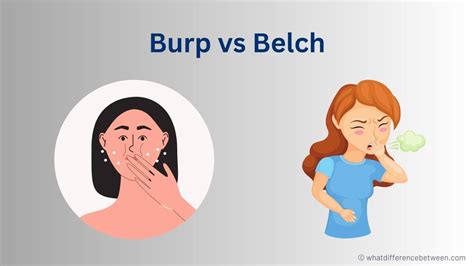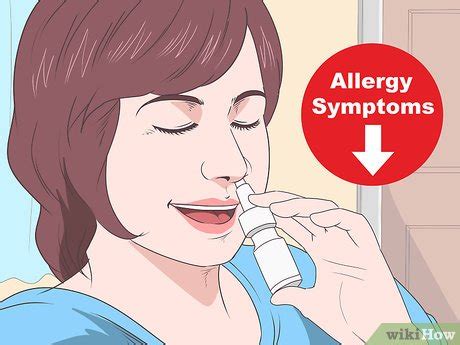Intro
Discover 5 effective ways to stop belching, reducing bloating and discomfort. Learn natural remedies, dietary changes, and lifestyle tweaks to alleviate gas and indigestion symptoms, promoting digestive health and relief from embarrassing belching episodes.
Belching, also known as burping, is a natural bodily function that occurs when gas builds up in the stomach and is released through the mouth. While it's a normal process, excessive belching can be embarrassing, uncomfortable, and even a sign of an underlying health issue. In this article, we'll explore the importance of managing belching, its causes, and provide practical tips on how to stop belching.
Belching can be caused by a variety of factors, including eating too quickly, drinking carbonated beverages, and consuming certain types of food. In some cases, belching can be a symptom of an underlying health condition, such as gastroesophageal reflux disease (GERD), irritable bowel syndrome (IBS), or gastroparesis. Understanding the causes of belching is crucial in finding effective ways to manage and prevent it.
Excessive belching can have a significant impact on a person's daily life, affecting their social interactions, self-confidence, and overall well-being. It can also lead to more serious health issues if left untreated. For instance, frequent belching can lead to stomach discomfort, nausea, and vomiting. Furthermore, belching can be a sign of an underlying condition that requires medical attention. Therefore, it's essential to take steps to manage belching and prevent its negative effects.
Understanding Belching

Causes of Belching
The causes of belching can be divided into two main categories: dietary and non-dietary factors. Dietary factors include eating too quickly, consuming carbonated beverages, and eating certain types of food, such as beans, cabbage, and broccoli. Non-dietary factors include stress, anxiety, and underlying health conditions, such as GERD, IBS, and gastroparesis.5 Ways to Stop Belching

Tips for Reducing Belching
In addition to the above methods, there are several other tips that can help reduce belching. These include: * Drinking plenty of water to help digest food and reduce gas production. * Avoiding tight clothing, which can put pressure on the stomach and cause belching. * Taking a walk after meals to help stimulate digestion and reduce gas production. * Avoiding chewing gum, which can lead to swallowing air and increasing gas production.Home Remedies for Belching

When to Seek Medical Attention
While belching is a common and usually harmless phenomenon, there are certain situations where it's essential to seek medical attention. These include: * Severe and persistent belching that interferes with daily life. * Belching accompanied by other symptoms, such as abdominal pain, nausea, and vomiting. * Belching that occurs after eating certain foods or drinks. * Belching that is accompanied by difficulty swallowing or breathing.Conclusion and Next Steps

Final Thoughts
Belching may seem like a trivial issue, but it can have a significant impact on a person's daily life and overall well-being. By taking the necessary steps to manage and prevent belching, individuals can improve their digestive health, reduce stress and anxiety, and enhance their overall quality of life. Remember, if you're experiencing persistent or severe belching, don't hesitate to seek medical attention.What are the main causes of belching?
+The main causes of belching include eating too quickly, drinking carbonated beverages, and consuming certain types of food, such as beans, cabbage, and broccoli. Stress, anxiety, and underlying health conditions, such as GERD, IBS, and gastroparesis, can also contribute to belching.
How can I reduce belching?
+To reduce belching, eat smaller, more frequent meals, avoid carbonated beverages, chew food slowly and thoroughly, and avoid eating trigger foods. Practicing stress-reducing techniques, such as meditation and deep breathing, can also help manage stress and anxiety.
When should I seek medical attention for belching?
+Seek medical attention if you experience severe and persistent belching that interferes with daily life, belching accompanied by other symptoms, such as abdominal pain, nausea, and vomiting, or belching that occurs after eating certain foods or drinks.
Are there any home remedies for belching?
+Yes, there are several home remedies that can help alleviate belching, including ginger, peppermint, chamomile, and activated charcoal. These remedies can help reduce inflammation, relax the muscles in the stomach, and absorb gas.
Can belching be a sign of an underlying health condition?
+Yes, belching can be a sign of an underlying health condition, such as GERD, IBS, or gastroparesis. If you experience persistent or severe belching, it's essential to seek medical attention to rule out any underlying health conditions.
We hope this article has provided you with valuable insights and practical tips on how to stop belching. If you have any questions or concerns, please don't hesitate to comment below. Share this article with your friends and family to help them manage their belching and improve their digestive health. Remember, taking care of your digestive health is essential for overall well-being, and with the right strategies and techniques, you can reduce your belching and enhance your quality of life.
